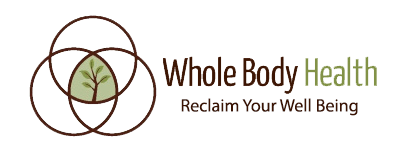Dry Skin Brushing: 7 Key Benefits
Your skin is a complex system made up of nerves, glands, and cell layers that, when healthy, serves as a buffer that helps protect your body from extreme temperatures and chemicals.
It also produces antibacterial substances to protect you from infection and enables your body to produce vitamin D when exposed to the sun. Your skin even contains densely packed nerve cells that act as messengers to your brain, making your skin a crucial part of your interactions with the world around you.
Another crucial role your skin plays is supporting optimal detoxification. But if your skin is overrun with toxins or dead skin cells, it will not be able to eliminate wastes from your body efficiently.
This is where dry skin brushing can be invaluable, not only in brushing off dead skin cells but also in activating waste removal via your lymph nodes. Beyond this, dry skin brushing offers multiple benefits including:
1. Stimulate Your Lymphatic System
In your body, your lymphatic system is the system responsible for eliminating cellular waste products. Hundreds of miles of lymphatic tubules allow waste to be collected from your tissues and transported to your blood for elimination, a process referred to as lymphatic drainage.
When your lymphatic system is not working properly, waste and toxins can build up and make you sick. Lymphatic congestion is a major factor leading to inflammation and disease. By stimulating your lymphatic system and helping it release toxins, dry skin brushing is a powerful detoxification aid.
2. Exfoliation
Dry skin brushing removes dead dry skin, improving appearance, clearing your clogged pores, and allowing your skin to “breathe.”
3. Increase Circulation
When you dry brush your skin, it increases circulation to your skin, which encourages the elimination of metabolic waste.
4. Reduce Cellulite
Dry skin brushing may help to soften hard fat deposits below the skin while distributing fat deposits more evenly. This may help to diminish the appearance of cellulite.
Dry brushing is also said to help reduce cellulite by removing toxins that may break down connective tissue, although some believe the effect is temporary (and mostly a result of skin become more plump and swollen after brushing).1The Huffington Post reported:2
“When we’d heard dry skin brushing was an effective method for reducing cellulite, we knew we had to include it in our anti-cellulite road test. Sure enough, it was indeed one of the more successful ways to smooth away less-than-perfect spots on your legs.”
5. Stress Relief
The act of dry brushing has been described as meditative (especially if you do it in a quiet space) and may reduce muscle tension, calm your mind, and relieve stress. Many compare it to a light whole-body massage.
6. Improve Digestion and Kidney Function
Dry skin brushing may go even deeper, helping to support your digestion and organ function. According to one skin care and spa expert:3
“…many naturopathic doctors use dry brushing to help with bloating because massaging the lymph nodes helps the body shed excess water and toxins. One of the immediate effects of dry brushing is smoother skin, but it can also help improve digestion, kidney function, and more.”
7. It’s Invigorating
Many people become “addicted” to dry skin brushing (in a good way) because it simply feels so good. Along with glowing and tighter skin, regular dry skin brushers report feeling invigorated after a quick session.
Dry Brushing: How to Do It
First you’ll need a high-quality dry brush. Look for one with bristles made from natural materials. They should feel stiff but not overly so. Ideally, choose a brush with a long handle so you can reach your entire back and other hard-to-reach spots.
Dry skin brushing should be done daily for best results, or even twice a day if you like. Try incorporating it into your normal daily routine, such as doing your brushing before your morning shower and then again after work (avoid doing it too close to bedtime, as it may leave you feeling energized).
When brushing, always brush toward your heart, which is best for circulation and your lymphatic system. You can brush your entire body (including the soles of your feet). Start at your feet and work your way up your legs to your arms, chest, back, and stomach. Avoid brushing your face (unless you have a special brush designed for this delicate skin), your genitals, or any areas with irritations or abrasions (including varicose veins).
The pressure you apply while brushing your skin should be firm but not painful (avoid “scrubbing”). Your skin should be pink after a session (not red or irritated) and you can brush for as long (or as little) as you’d like. An average dry brushing session may last between two and 20 minutes.
Full article on dry skin brushing.
Mercola, J. “Dry Skin Brushing: Benefits and How To” Retrieved March 20, 2012, fromhttp://articles.mercola.com/sites/articles/archive/2014/02/24/dry-skin-brushing.aspx
